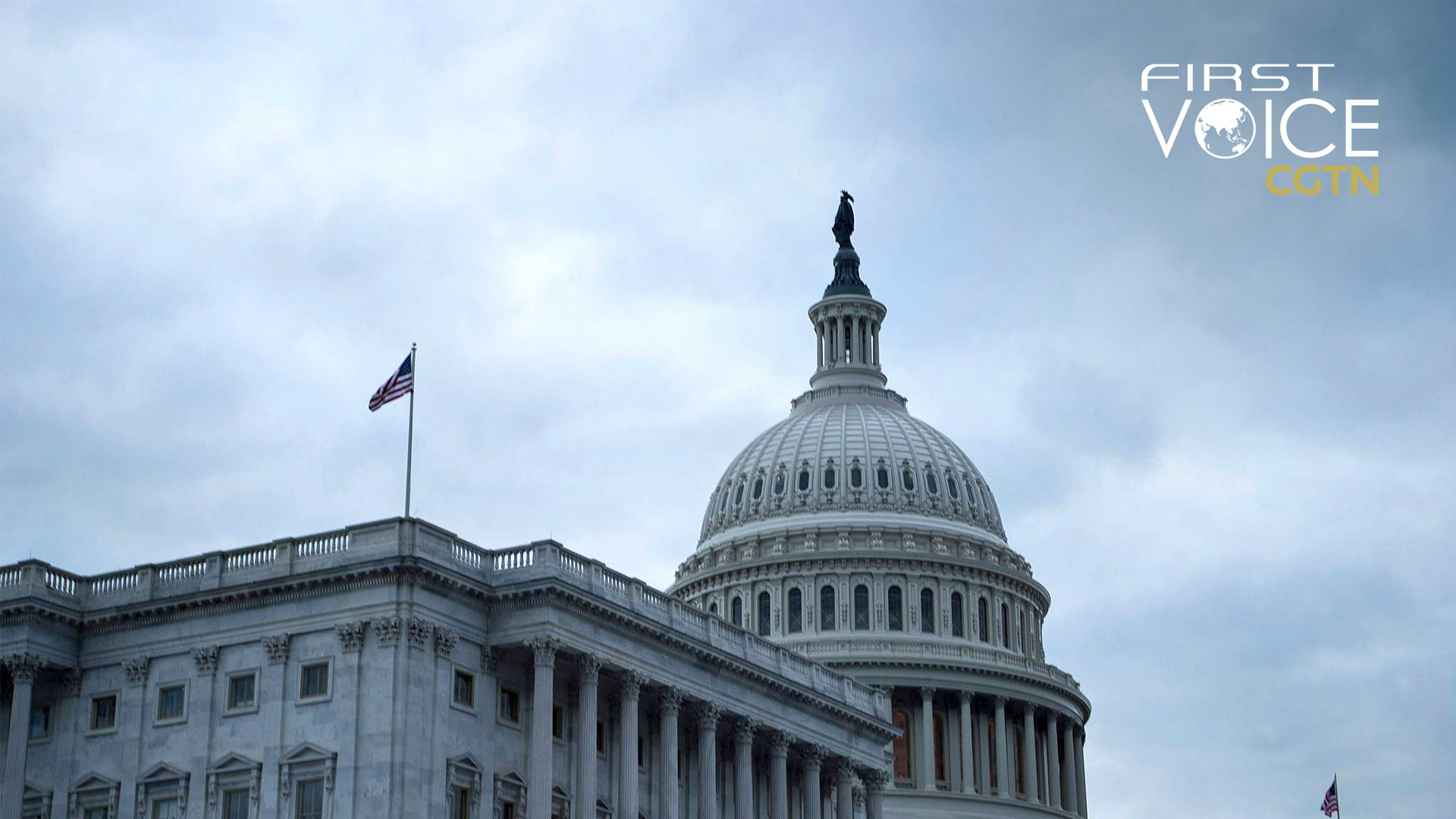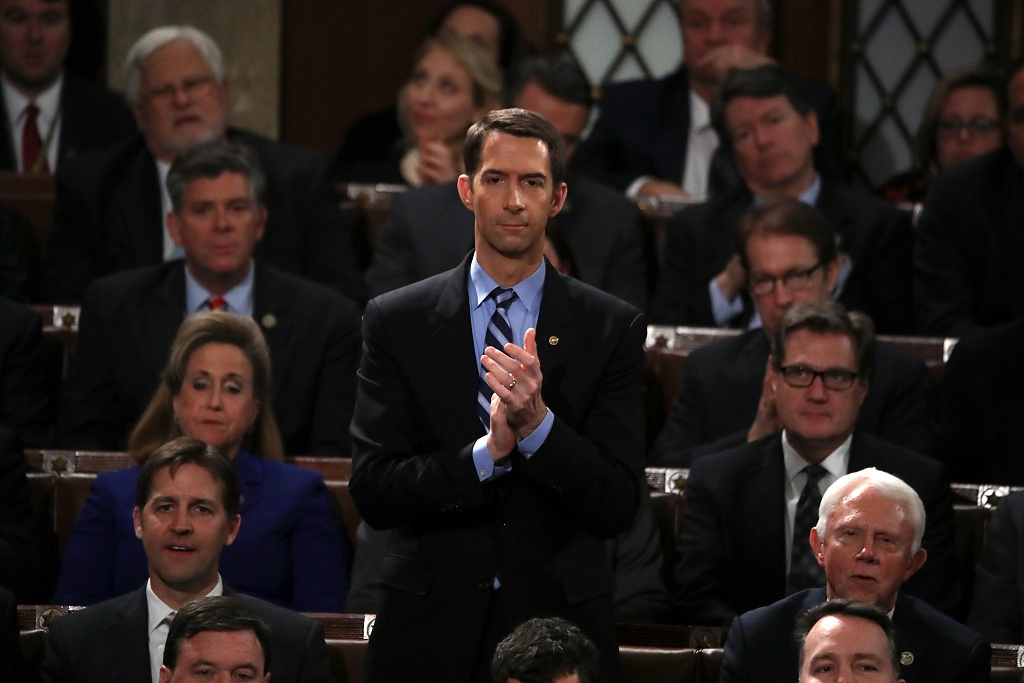
Editor's note: CGTN's First Voice provides instant commentary on breaking stories. The daily column clarifies emerging issues and better defines the news agenda, offering a Chinese perspective on the latest global events.
"He is the hero of China," said China's renowned respiratory scientist Dr. Zhong Nanshan on Dr. Li Wenliang's passing.
There's no doubt what Dr. Li did was heroic. As one of the first group of people who gave out warnings about COVID-19, he was once reprimanded by Wuhan police for rumor mongering. Later, the central government awarded him for his contribution in the fight against the disease and sent in a team to investigate the incident.
Li passed away after contracting the virus himself while tending to patients. Since his death, there has been an outpouring of public support for him. The world mourned the loss of a great doctor.
And where support rises, opportunists soon follow.
Ostensibly, the resolution passed by the U.S. Senate on March 3 is intended to honor Li. However, the articles purported to be "commemorating the life of Dr. Li Wenliang" ended up turning his heroism into an excuse for subversion and division.
Before getting into the details, we should first get acquainted with the architect of the resolution – Republican Senator Tom Cotton of Arkansas. As someone who described China as building an "new evil empire," he has a peculiar view of the country. And over the course of the outbreak, the senator was described by HuffPost as spreading "misinformation and panic in a weeks-long meltdown over the disease" and by the New York Times as repeating "fringe theory of coronavirus origins." He once characterized China's work at finding a vaccine as "Manhattan Project-level," linking it to the atomic bomb development during the Second World War.

Republican Senator Tom Cotton has been a staunch anti-China official within the U.S. government. Over the course of the COVID-19, he has made wild accusations and spread false information about the disease. /VCG
Republican Senator Tom Cotton has been a staunch anti-China official within the U.S. government. Over the course of the COVID-19, he has made wild accusations and spread false information about the disease. /VCG
The above description, perhaps, is enough for the readers to grasp where the resolution is heading towards. And the article itself doesn't disappoint. It is, in essence, trying to use Li's heroism to drive a wedge between the Chinese government and the Chinese people. Through various ways, the resolution is trying to paint a picture of Chinese government not allowing "freedom of expression" over COVID-19's development and that such an act is hampering the global response and putting public's health in jeopardy. It calls on China to ensure "free and unfettered access" and "cooperate fully with the United States Government…and other regions." The freedom of expression, as the bill states, "helps citizens ensure that their government addresses weaknesses in crisis response."
For starters, China has, over the past months, cooperated fully with the World Health Organization (WHO) in sharing the information on the virus. The government is giving out daily press conference and updates about COVID-19. And Dr. Tedros, Director-General of the WHO, commended China for "openness to sharing information."
The problem here is that "freedom of expression" is such an overarching idea, any nuances could be lost before it. And for those who is hellbent on criticizing China's actions and creating a false depiction of the real situation, there's no easier way than tapping into this generalization.
Ironically, while the U.S. attacks China on the grounds of "freedom of expression," on February 27, the White House demanded government health officials and scientists to coordinate all statements and public appearances with U.S. Vice President Mike Pence, who was installed as the point person in handling the government's response to the health crisis. If the U.S., according to Wall Street Journal, is controlling information to get "the administration's political leaders on the same page" and "isn't intended to muzzle government scientists and health experts," then why should some of the measures taken by the Chinese government seen as concealing the truth? The reality is, during a public health crisis, managing the information flow is critically important to any government intends on solving the crisis with minimal impact.
With an indifference towards details and a clear aim at undermining China's unity, the resolution has turned Dr. Li's heroic deeds into the U.S.' own political weapon. And for a government that's bungling its response to the outbreak and shifting blame towards China for the past two weeks, one has to say to the passage of this resolution: great timing.
Script writer: Huang Jiyuan
(If you want to contribute and have specific expertise, please contact us at opinions@cgtn.com)